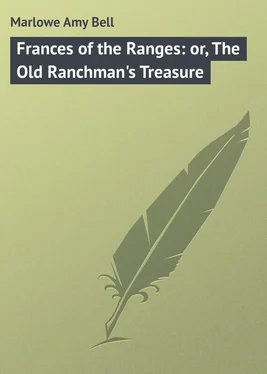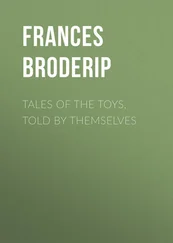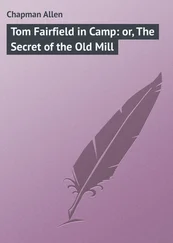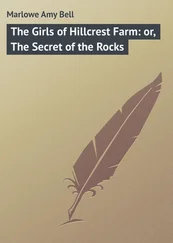Amy Marlowe - Frances of the Ranges - or, The Old Ranchman's Treasure
Здесь есть возможность читать онлайн «Amy Marlowe - Frances of the Ranges - or, The Old Ranchman's Treasure» — ознакомительный отрывок электронной книги совершенно бесплатно, а после прочтения отрывка купить полную версию. В некоторых случаях можно слушать аудио, скачать через торрент в формате fb2 и присутствует краткое содержание. Издательство: Иностранный паблик, Жанр: foreign_prose, foreign_adventure, на английском языке. Описание произведения, (предисловие) а так же отзывы посетителей доступны на портале библиотеки ЛибКат.
- Название:Frances of the Ranges: or, The Old Ranchman's Treasure
- Автор:
- Издательство:Иностранный паблик
- Жанр:
- Год:неизвестен
- ISBN:нет данных
- Рейтинг книги:3 / 5. Голосов: 1
-
Избранное:Добавить в избранное
- Отзывы:
-
Ваша оценка:
- 60
- 1
- 2
- 3
- 4
- 5
Frances of the Ranges: or, The Old Ranchman's Treasure: краткое содержание, описание и аннотация
Предлагаем к чтению аннотацию, описание, краткое содержание или предисловие (зависит от того, что написал сам автор книги «Frances of the Ranges: or, The Old Ranchman's Treasure»). Если вы не нашли необходимую информацию о книге — напишите в комментариях, мы постараемся отыскать её.
Frances of the Ranges: or, The Old Ranchman's Treasure — читать онлайн ознакомительный отрывок
Ниже представлен текст книги, разбитый по страницам. Система сохранения места последней прочитанной страницы, позволяет с удобством читать онлайн бесплатно книгу «Frances of the Ranges: or, The Old Ranchman's Treasure», без необходимости каждый раз заново искать на чём Вы остановились. Поставьте закладку, и сможете в любой момент перейти на страницу, на которой закончили чтение.
Интервал:
Закладка:
Frances laughed. “Daddy is still unconverted. He does not believe that the Panhandle is fit for anything but cattle. But he’s going to let me have two hundred acres to plow and sow to wheat–he’s promised.”
The Captain grunted again.
“And last year we grew a hundred acres of milo maize and feterita. Helped on the winter feed–didn’t it, Daddy?” and she laughed.
“Got me there, Frances–got me there,” admitted the old ranchman. “But I don’t hope to live long enough to see the Bar-T raising more wheat than steers.”
“No. It’s stock-raising we want to follow, I believe,” said the girl, calmly. “We must raise feed for our steers, fatten them in fenced pastures, and ship them more quickly.”
“My goodness!” exclaimed Pratt, admiringly, “you talk as though you understood all about it, Miss Frances.”
“I think I do know something about the new conditions that face us ranchers of the Panhandle,” the girl said, quietly. “And why shouldn’t I? I have been hearing it talked about, and thinking of it myself, ever since I can remember.”
Secretly Pratt thought she must have given her attention to something beside the ranch work and cattle-raising. Of this he was assured when they went inside later, and Frances sat down to the piano. The instrument was in a big room with a bare, polished floor. It was evidently used for dancing. There was a talking machine as well as a piano. The girl played the latter very nicely indeed. There were a few scratches on the floor of the room, and she saw Pratt looking at them.
“I told Ratty M’Gill he shouldn’t come in here with the rest of the boys to dance if he didn’t take his spurs off,” she said. “We have an old-time hoe-down for the boys pretty nearly every week, when we’re not too rushed on the ranch. It keeps ’em better contented and away from the towns on pay-days.”
“Are the cowpunchers just the same as they used to be?” asked Pratt. “Do they go to town and blow it wide open on pay-nights?”
“Not much. We have a good sheriff. But it wasn’t so long ago that your fancy little city of Amarillo was nothing but a cattleman’s town. I’m going to have a representation of old Amarillo in our pageant–you’ll see. It will be true to life, too, for some of the very people who take part in our play lived in Amarillo at the time when the sight of a high hat would draw a fusillade of bullets from the door of every saloon and dance-hall.”
“Don’t!” gasped Pratt. “Was Amarillo ever like that ?”
“And not twenty years ago,” laughed Frances. “It had a few hundred inhabitants–and most of them ruffians. Now it claims ten thousand, has bricked streets that used to be cow trails, electric lights, a street-car service, and all the comforts and culture of an ‘effete East.’”
Pratt laughed, too. “It’s a mighty comfortable place to live in–beside Bill Edwards’ ranch, for instance. But I notice here at the Bar-T you have a great many of the despised Eastern luxuries.”
“‘Do-funnies’ daddy calls them,” said Frances, smiling. “Ah! here he is.”
The old ranchman came in, the holstered pistol still slung at his hip.
“All secure for the night, Daddy?” she asked, looking at him tenderly.
“Locked, barred, and bolted,” returned her father. “I tell you, Pratt, we’re something of a fort here when we go to bed. The court’s free to you; but don’t try to get out till Ming opens up in the morning. You see, we’re some distance from the bunk-house, and nobody but the two Chinks are here with us now.”
“I see, sir,” said Pratt.
But he did not see; he wondered. And he wondered more when, after separating from Frances for the night, he found his way through the hall to the door of the room that had been assigned to him for his use.
On the other side of the hall was another door, open more than a crack, with a light shining behind it. Pratt’s curiosity got the better of him and he peeped.
Captain Dan Rugley was standing in the middle of the almost bare room, before an old dark, Spanish chest. He had a bunch of keys in one hand and in the other dangled the ancient girdle and the bracelet Frances had worn.
“That must be the ‘treasure chest’ she spoke of,” thought the youth. “And it looks it! Old, old, wrought-iron work trimmings of Spanish design. What a huge old lock! My! it would take a stick of dynamite to blow that thing open if one hadn’t the key.”
The Captain moved quickly, turning toward the door. Pratt dodged back–then crept silently away, down the hall. He did not know that the eye of the old ranchman watched him keenly through the crack of the door.
CHAPTER IV
WHAT HAPPENED IN THE NIGHT
Frances looked through her barred window, out over the fenced yard, and down to the few twinkling watch-lights at the men’s quarters. All the second-story windows of the ranch-house, overlooking the porch roof, were barred with iron rods set in the cement, like those on the first floor. The Bar-T ranch-house was a veritable fort.
There was a reason for this that the girl did not entirely understand, although her father often hinted at it. His stories of his adventures as a Texas Ranger, and over the Border into Mexico, amused her; but they had not impressed her much. Perhaps, because the Captain always skimmed over the particulars of those desperate adventures which had so spiced his early years–those years before the gentle influence of Frances’ mother came into his life.
He had mentioned his partner, “Lon,” on this evening. But he seldom particularized about him.
Frances could not remember when her father had gone into Arizona and returned from thence with a wagon-train loaded with many of the most beautiful of their household possessions. It was when she was a very little girl.
With the other things, Captain Rugley had brought back the old Spanish chest which he guarded so anxiously. She did not know what was in the chest–not all its treasures. It was the one secret her father kept from her.
Out of it he brought certain barbarous ornaments that he allowed her to wear now and then. She was as much enamored of jewelry and beautiful adornments as other girls, was Frances of the ranges.
There was perfect trust between her father and herself; but not perfect confidence. No more than Pratt Sanderson, for instance, did she know just how the old ranchman had become possessed of the great store of Indian and Spanish ornaments, or of the old Spanish chest.
Certain she was that he could not have obtained them in a manner to wrong anybody else. He spoke of them as “the loot of old Don Milo Morales’ hacienda ”; but Frances knew well enough that her good father, Captain Dan Rugley, had been no land pirate, no so-called Border ruffian, who had robbed some peaceful Spanish ranch-owner across the Rio Grande of his possessions.
Frances was a bit worried to-night. There were two topics of thought that disturbed her.
Motherless, and with few female friends even, she had been shut away with her own girlish thoughts and fears and wonderings more than most girls of her age. Life was a mystery to her. She lived in books and in romances and in imagination’s pictures more than she did in the workaday world about her.
There seems to be little romance attached to the everyday lives we live, no matter how we are situated. The most dreary and uncolored existence, in all probability, there is in the world to-day is the daily life of a real prince or princess. We look longingly over the fence of our desires and consider all sorts and conditions of people outside as happier and far better off than we.
That was the way it was with Frances. Especially on this particular night.
Читать дальшеИнтервал:
Закладка:
Похожие книги на «Frances of the Ranges: or, The Old Ranchman's Treasure»
Представляем Вашему вниманию похожие книги на «Frances of the Ranges: or, The Old Ranchman's Treasure» списком для выбора. Мы отобрали схожую по названию и смыслу литературу в надежде предоставить читателям больше вариантов отыскать новые, интересные, ещё непрочитанные произведения.
Обсуждение, отзывы о книге «Frances of the Ranges: or, The Old Ranchman's Treasure» и просто собственные мнения читателей. Оставьте ваши комментарии, напишите, что Вы думаете о произведении, его смысле или главных героях. Укажите что конкретно понравилось, а что нет, и почему Вы так считаете.












